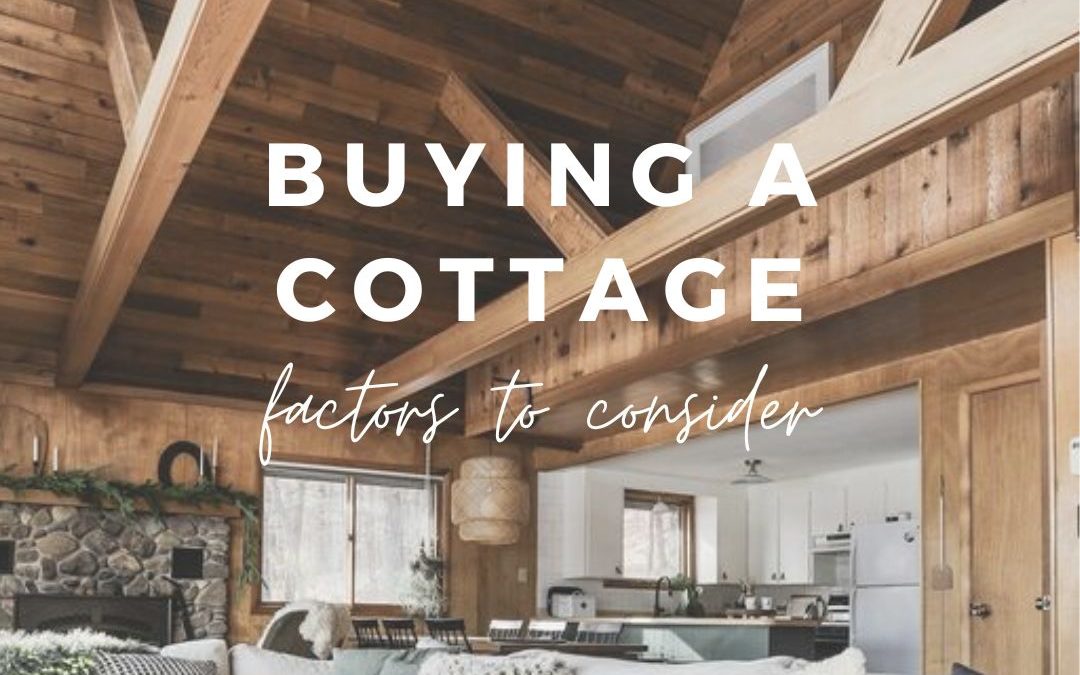Buying a Cottage – Factors to Consider
Year-Round Maintenance
Before buying a cottage, there are factors to consider. It is crucial to have a thorough evaluation to ensure the home is weather-proofed for the summer and winter months. When considering year-round maintenance, key considerations include checking out the age of the roof, doors and windows. You’ll also want to confirm the level of insulation, including under the floors.
If you aren’t planning to visit your cottage during the winter, having the roof, doors and windows in good condition can save you money and work come springtime. It is essential to familiarize yourself with the local by-laws for winter snow removal. Some regions have rules that state a pathway must always be cleared during the winter months.
Plumbing
When looking at cottages for sale, make a list of important amenities, such as having indoor plumbing. Many cottages don’t have indoor plumbing, and instead only have an outhouse. In addition, many properties in recreational markets run on a septic system which requires a different amount of maintenance, care and attention year-round.
Ease of Access
Location plays a significant role in the seasons you visit your vacation home. A property that is only accessible by water will probably just be used as a summer home. If this is the case, you’ll need to consider the price of purchasing a boat when buying a cottage located on an island.
Some properties in very rural areas may be accessible by car but may not be accessible during the winter months as many backcountry roads are not maintained during these months. Depending on how secluded your cottage is, another important thing to consider is how close the cottage is to essential amenities such as grocery stores and gas stations.
Rental Potential
When purchasing a cottage as a rental property, key amenities to your potential renters are the number of bedrooms and bathrooms, ease of access, and location. If your goal of purchasing the cottage is to rent it out, ensure you review the rules and regulations regarding renting out seasonal property and research the different platforms available to market your cottage such as Airbnb.
Taxes and Capital Gains
If the property is used solely as personal recreational property, there are other tax rules than if you decide to rent out your cottage. In addition, upon sale of the cottage, you will be responsible for paying taxes on any capital gain of the property.
Before making any significant financial decision and purchasing a property, it is essential to consider both your financial situation and your needs and wants in the property. Reaching out to a professional for advice is always a wise first step!
If you’re interested in looking into a secondary property, we’re always here to help!
